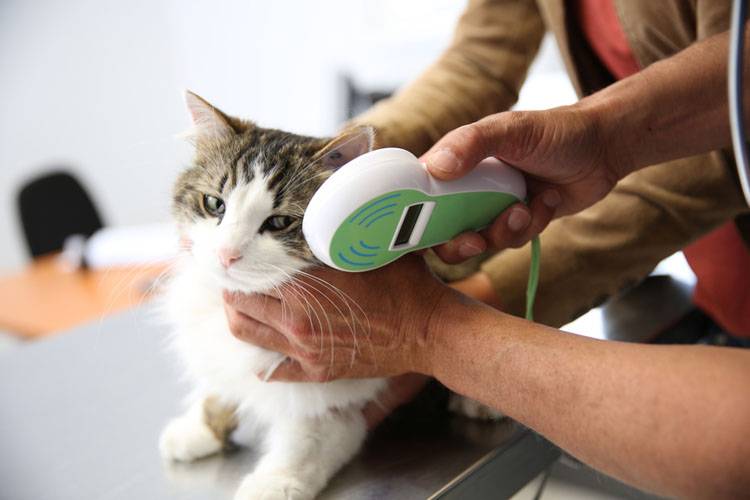What is Toxoplasmosis?
Toxoplasmosis is a single-celled parasite found throughout the United States and can infect any warm-blooded animal, bird or human. You may be at a higher risk of contracting toxoplasmosis if you work with animals. However, the parasite rarely causes significant clinical diseases in cats or any species.
The eggs, or oocysts, are ingested by rodents, birds and other ground-feeding mammals, such as sheep, cattle, goats and pigs, which then migrate to the brain and muscle tissue. When an intermediate host eats an infected prey, the parasite is released into the mammal’s intestinal system and passed into the feces where the life cycle is repeated.
The danger lies in the fact that any warm-blooded host, the T. gondii can also be transmitted in utero (or across the placenta) and through the milk. In the U.S., people are more likely to become infected with toxoplasmosis by eating unwashed fruits and vegetables or raw meat than from handling cat feces.
Toxoplasmosis in Cats
Cats are the primary hosts of T. gondii, as they are the only mammals in which the parasite is passed through the feces. Since cats only shed the parasite for only a few days in their entire life, the chance of human exposure is very small. Having a cat doesn’t mean you’ll come down with toxoplasmosis, and it’s very unlikely you would be exposed by touching an infected cat since they don’t carry T. gondii on her fur. If you’re unsure if your cat has toxoplasmosis, contact your local veterinary hospital and speak to a veterinary assistant for testing. Remember cat bites and scratches don’t infect humans with the disease.
RELATED: Facts About Catnip
Toxoplasmosis Symptoms & Treatment
Common symptoms of toxoplasmosis include fever, lethargy and loss of appetite. However, most infected pregnant women don’t exhibit symptoms. Treatment for toxoplasmosis requires a course of antibiotics or other drugs that will inhibit T. gondi reproduction. The treatment needs to start as soon as a diagnosis is made and must be continued for several days after the signs have disappeared.
Pregnant women or people who are immunodeficient (someone who is undergoing a immunosuppressive therapy, such as for cancer or organ transplant) are at the highest risk.
There are several factors that can reduce the risk of becoming infected:
- Wear gloves while gardening and wash hands when done.
- Wash fruits and vegetables before eating.
- Keep children’s sandboxes covered.
- Avoid undercooked or raw meat.
- Wash hands prior to eating.
- Remove feces from litter box daily. However, people with suppressed immune systems or pregnant women should avoid cleaning the litter box.
- Don’t drink unpasteurized milk.
- Clean food prep areas with warm, soapy water after handling raw meat.
- Boil any water that is taken from the streams or ponds.
- Control the rodent population or other intermediate hosts.
Sources:
www.peteducation.com
www.vet.cornell.edu
READ MORE: Blood Typing Dogs and Cats





